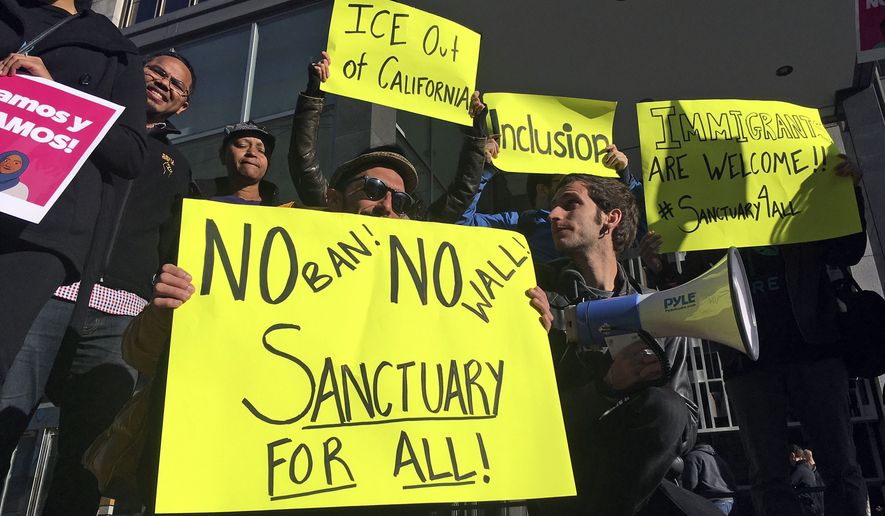SAN FRANCISCO — The Trump administration will not immediately have to award California a grant being withheld over concerns the state is a sanctuary for people in the country illegally, a federal judge said Monday.
The amount of money at issue – $1 million – was relatively small and was at this point only delayed, not denied, U.S. District Judge William Orrick said. While he rejected the state’s request for a preliminary injunction to turn over the money, he also rejected a request by the U.S. Department of Justice to dismiss California’s lawsuit.
The judge said the suit raised “weighty and novel constitutional issues” that would benefit from additional argument.
Many cities in the U.S., and some states, have implemented so-called sanctuary laws encouraging law enforcement to focus resources on local crime rather than detaining people suspected of being in the country illegally. Defenders of the practices say they improve public safety by promoting trust among law enforcement and immigrant communities and reserve scarce police resources for urgent crime-fighting needs.
Attorney General Jeff Sessions has blamed “sanctuary city” policies for crime and gang violence. In July, Sessions announced that cities and states could only receive Edward Byrne Memorial Justice Assistance grants if they allow federal immigration officials access to detention facilities and provide advance notice when someone in the country illegally is about to be released.
Cities and states were also required to certify that they complied with a particular federal immigration law. The Trump administration says that law requires that California not restrict officials from sharing information regarding immigration status with federal immigration officers, including information regarding a person’s date of release from state custody and home address.
A federal judge in Chicago last year blocked the advance notice and access requirements in a ruling that applied nationwide. But U.S. District Judge Harry D. Leinenweber said the DOJ could require Byrne Memorial grant recipients to certify compliance with the federal immigration law at issue.
An email to the California attorney general’s office was not immediately returned.




Please read our comment policy before commenting.